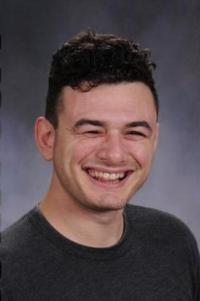You are here
Max Dornfest
University of California-Berkeley
AIP Mather Policy Intern
National Institute of Standards and Technology (NIST)
Final presentation
![]() Dornfest Final Presentation.pdf
Dornfest Final Presentation.pdf
This paper examines the treatment effect of institutes of advanced manufacturing seeded by the interagency Manufacturing USA program. With tens of millions of dollars awarded annually in grants resulting in even more private sector investment it is expected that there is an empirical (and positive) impact because of these manufacturing innovation institutes. First, a standard regression analysis establishing the average national trends for our metrics of choice (unemployment, median wages, productivity, ect) is performed on data obtained from both the Census Bureau’s (CB) county business patterns database, and through EMSI (a data aggregation utility used by U.S. Department of Commerce staff). A second method of analysis is a regression discontinuity design. Many institutes have satellite campuses which were incorporated at later dates. We look at whether introduction into the Manufacturing USA program has a similar impact across a multi-year scale for any given organization—not simply institute headquarters. If we are successful in showing that the utility derived from the establishment and funding of advanced manufacturing programs is real and measurable, then we are also simultaneously providing tangible evidence in support of federal budgets which continue to fund the office’s ongoing mission and the next generation of manufacturing programs that AMNPO and MEP will sheppard.
Originally from Fremont, CA. I am a senior at the University of California, Berkeley. I am graduating as a double major in physics and political science with a minor in public policy. My areas of focus are international relations, national security, and theoretical cosmology.
Off campus, I am an undergraduate researcher at Lawrence Berkeley National Laboratory (LBNL) at the computational cosmology center, where I write python code to analyze hydrodynamic simulations of the intergalactic medium (neutral hydrogen and dark matter). My honors thesis is on testing and validating the efficiency of neural networks (variational auto-encoders) over brute force supercomputing. In my free time, I am part of the ski and snowboard club, what is the concept of free time anymore, and I write poetry. Looking forward, in the near future I am set to be hired by my research supervisor at LBNL for Fall 2020. I look forward to attending a PhD. program in computational astrophysics next year.
I would like to one day be involved in lobbying for funding education, basic research, and science infrastructure at the federal level. To bring things full circle, that is why I am so excited to be a Mather policy intern at NIST this summer!

